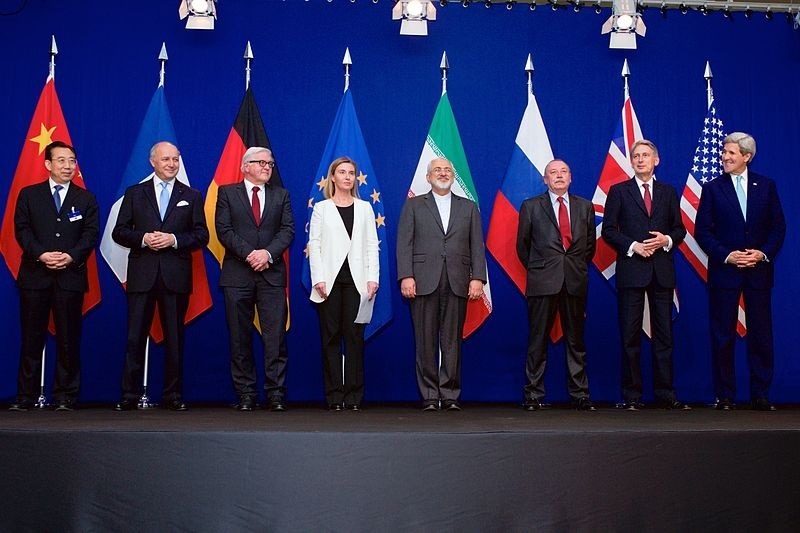
July 23, 2015; Jewish Journal
What happens when organizations take public policy positions that are out of sync with their constituencies? American Jewish organizations considering taking a position on the Iran Nuclear agreement may soon find out.
Results from a survey conducted by the LA Jewish Journal in the days following the announcement of that agreement present a clear picture of public opinion in the American Jewish community. Of the national sample, 48% indicated they support the agreement, while only 28% oppose it. Demographer Steven Cohen, who guided the Journal’s survey process, summarized the findings: “By a wide margin, American Jews support the recently concluded agreement with Iran to restrict its nuclear program, and a clear majority of Jews wants Congress to approve the deal. In fact, as compared with Americans generally, Jews are more supportive of the “Iran deal…The bottom line: American Jews, more than Americans generally, tend to support the Iran deal and they want Congress to approve it.”
Within that summary there are divisions that may have major implications for organizations; the survey found a clear divide between those who are more generally politically liberal and those who are more conservative. “Among Jewish liberals (self-defined), those favoring congressional approval outnumber opponents 72 percent to 18 percent. For conservative Jews, the numbers are reversed: 8 percent for approval and 81 percent opposed. Similarly, Jewish Democrats divide 70 percent-20 percent in favor of congressional approval, while the Republicans divide 77 percent-15 percent in opposition.”
These results also place American Jewish opinion at odds with the overall American body politic and the feelings of Israeli Jews, who, led by the government of Prime Minister Benjamin Netanyahu, are strongly opposed to the agreement.
In this divisive environment, Jewish nonprofits are being asked to take sides.
Sign up for our free newsletters
Subscribe to NPQ's newsletters to have our top stories delivered directly to your inbox.
By signing up, you agree to our privacy policy and terms of use, and to receive messages from NPQ and our partners.
Political action organizations who are in the business of lobbying and taking politically charged positions enter this arena as a matter of course. AIPAC, the self-described American pro-Israel lobby, quickly released a position statement after the agreement was announced: “We strongly believe that the alternative to this bad deal is a better deal. Congress should reject this agreement…” Its rival, J-Street, took an opposite stand, stating that it “…intends to back it and work hard for its implementation, making the case to Congress that this agreement serves the vital security interests of both the United States and Israel.”
But for organizations whose purpose is much wider than political action, and who represent diverse communities being out of step with their public’s opinions, it can be more problematic and may have wider repercussions. Through their planning and fundraising efforts, Jewish Federations support a wide range of human services in their communities, often serving as part of the safety net that helps protect our most vulnerable populations. Choosing to enter the heated arena of the Iran nuclear debate can have significant fall-out if donors and supporters are alienated. Their community organizing abilities can be weakened if they are seen as out of step with community opinion.
Already, several have taken a public position while others are in the process of deciding whether to speak at all. The Jewish Federation of Greater Miami issued a statement about the agreement: “Regretfully, we have no choice but to oppose it and we urge others to join us.” Boston’s Combined Jewish Philanthropies directed its community “…to reach out to their elected representatives in the House and the Senate to express their deep concern, and to urge them to vote against this deal.”
Shmuel Rosner, the Journal’s senior political editor, described the Iran nuclear split within the American Jewish community as “an invitation for bickering, infighting, acrimony…the Jews of America (those in favor of the agreement) and the other Jews of America (those against the agreement) have to find a way to keep living their communal life…while having a significant disagreement over a highly volatile issue.”
With respect to organizations like Jewish Federations who choose to act, particularly with positions that may place them in opposition with the majority of their communities, the challenge is whether or not they can find a way to keep strong and diverse opinions from affecting their overall support. If the disagreement between organizations and their constituencies leave lasting scars resulting in reduced financial support, their ability to fund many of the human service organizations that depend on their support will suffer the consequences.—Marty Levine












